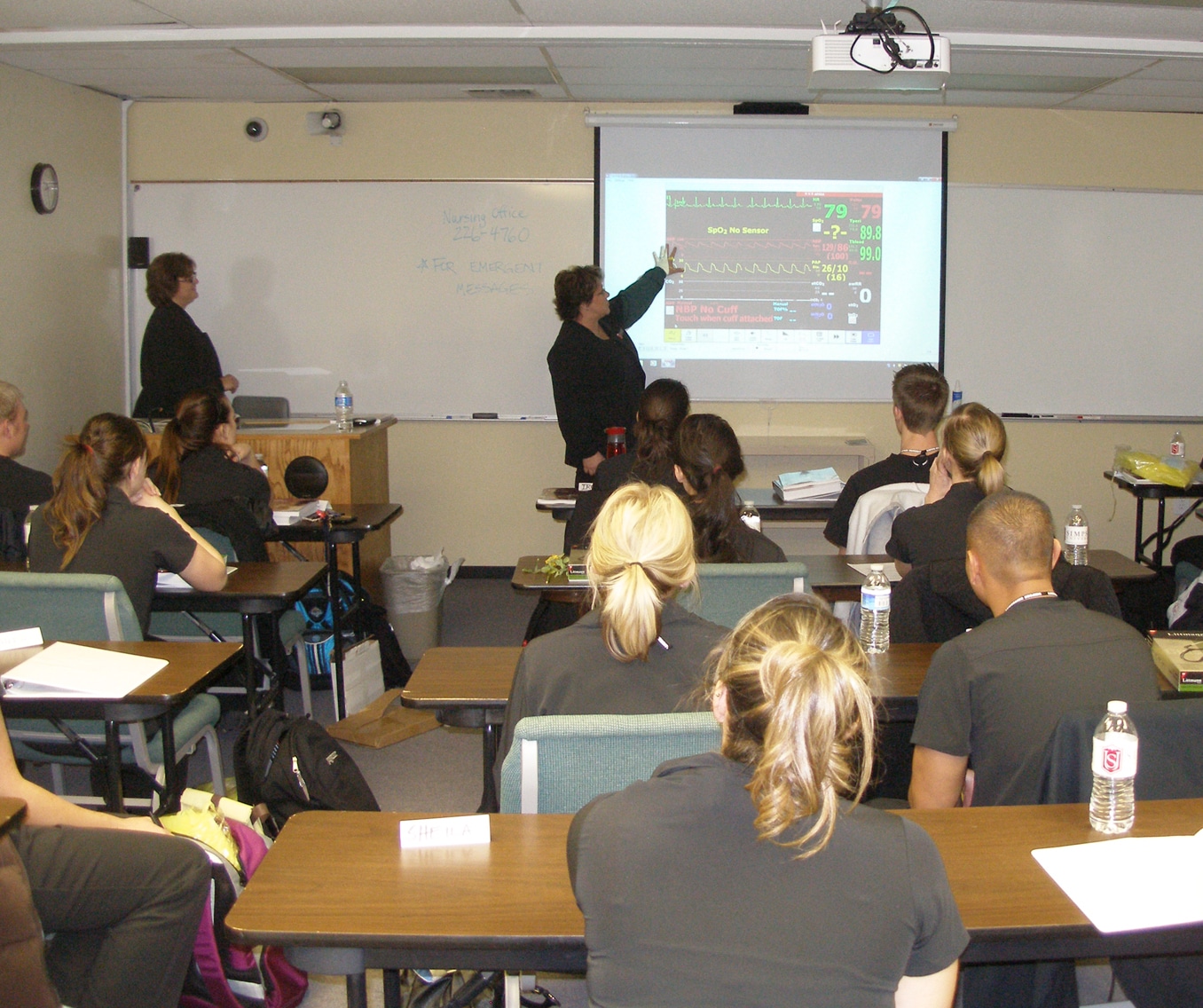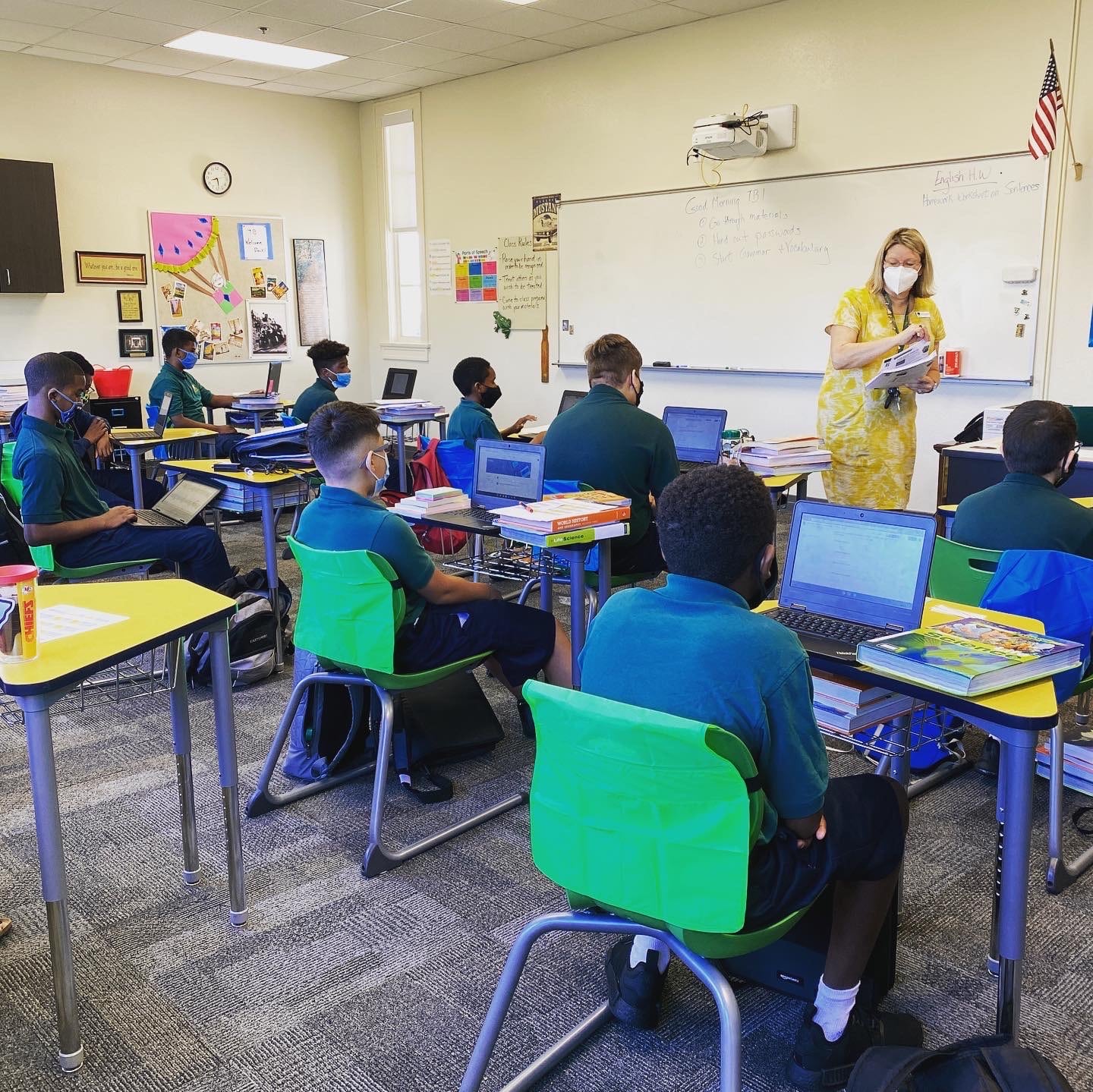Essential Classes Outside Of Your Major
College students should take classes outside of their degree requirements whenever possible during their college careers. Not only does this ensure that they become well-rounded members of the workforce and balanced citizens, it also provides opportunities to learn additional life skills.
I believe these types of courses allow for a greater engagement within all aspects of the students’ life, making learning available to them beyond the classroom, says Dr. Josie Urbistondo, English Professor at University of Miami. Ideally, their entire life becomes their learning laboratory and they acknowledge how they critically function within their communities.
Read on for our list of nine advantageous courses that students should consider taking.
How Many General Education Electives Do I Have To Take
At Mohawk College, students in most diploma programs are required to take two or three General Education Electives. To find out how many General Education Electives you are required to take for your program, consult your MAP , which displays your entire program of study including completed, in-progress, and remaining course work. MAP can be found on MyMohawk Academics My Grades My Academic Progress .
Consider Area Of Study Electives That Focus On A Specific Discipline
Area of study electives can help you develop a deeper understanding of a specific subject area within your degree discipline. Here, you can choose electives that are relevant to your personal and professional goals. For example, a marketing degree candidate may choose to narrow down his/her degree focus to take only advertising courses to pursue an industry-specific career.
Read Also: What Classes To Take In College Freshman Year
Don’t Miss: Are There Any Free Accredited Online Colleges
Take Electives After You Have Satisfied Your Required Courses
Any course can fulfill your free elective requirements, but not every course can fulfill your area of study and general education requirements. So create a degree plan that ensures you will meet the required courses you need to graduate before you take any electives. After consulting your Academic Evaluation to determine the courses you still need, use this method to tackle your remaining courses:
First, complete your general education requirements, and then your general education electives. If you have transferred in a significant amount of credits or taken any exams for credit, a majority of those credits will most likely fall into the first and second tier . Once these have been satisfied, subsequent credits will attempt to fit into the next possible slot in your degree program. Then, complete your area of study requirements, followed by your area of study electives. Again, if you have transfer credits that satisfy these requirements, they will apply accordingly to your degree. Lastly, if any of your transfer credits do not fit into your general education and area of study requirements, they will apply as free electives. If your free electives have been filled, then credits will apply as other courses. Once all your degree requirements have been met, then you can take the electives you want, if you still have room to do so.
Start With The Basics

Not only are these required for graduating high school, all colleges want to see students with:
- 4 years of English
- 3 years of Math
- 3 years of Science
- 3 years of Social Science like history or social studies
For more selective colleges, plan on taking 4 years of each of these core classes. Students who are interested in STEM fields should take 4 years of math and science.
Recommended Reading: How To Sell My College Textbooks
What Is A Lab
Some courses may supplement lectures with labs. This is particularly true for certain STEM disciplines, such as biology, chemistry, physics, and anatomy/physiology. Labs allow learners to apply key concepts in hands-on settings and expose students to the tools, methods, and procedures typically involved in research and testing.
Students may conduct various tests, experiments, slide studies, or dissections. Those enrolled in more specialized labs, such as nursing labs, can become familiar with the procedures and equipment found in the workplace.
Labs generally require students to use equipment like microscopes, thermometers, graduated cylinders, and pipettes. Learners may be responsible for some of their own materials, such as goggles and lab coats.
Although labs consist of various hands-on procedures, many online courses include innovative alternatives to accommodate remote learners. For example, some virtual labs allow students to use at-home lab kits.
Some procedures require instructor or TA supervision or have other practical or safety limitations. Virtual labs allow students to visualize concrete outcomes, chemical reactions, or anatomical structures through interactive digital simulations.
Learn Your Major Requirements
Completing your major requirements early can give you more flexibility in your schedule later in your college career. Keep in mind that you may have to take your major courses in a specific order. When doing this planning, check to see which semesters your college offers specific courses. You may find that you need to take one course in the fall and the follow-up course in the spring. By planning ahead, you can make sure you finish your degree on time.
Related: Top 5 College Majors for a Rewarding Career
You May Like: Where To Sale College Textbooks
Health And Service Homebase
Programs that prepare students to work in fields such as Administration of Justice, Dance, Fire Technology, Funeral Service Education, General Science, Gerontology, Healthcare Interpreting, Homeland Security, Human Services, Kinesiology and Athletics, Nursing and Allied Health, Nutrition, Paramedic and EMT, Public Safety, Recreation, Respiratory Care, and Speech-Language Pathology.
A Real Adult Things Class
As with first years, students nearing the end of college often feel clueless about how adult things like taxes and mortgages work. Some schools will offer classes regarding financial literacy and personal finance that touch on a lot of these areas. While it might be a snooze if you dont get lucky with your professor, youll be better for it if you can retain all the important information.
Another common requirement for graduation is a physical education class. This usually fills students with dread, and rightfully so if youre not already in pretty good shape. But, if you get in shape because its literally required of you, its much easier to keep that habit later on since youve already had it instilled in you through class.
Consider picking up an elective physical education class that focuses on a specific type of exercise you enjoy, like yoga or weightlifting. That way, youre staying in shape and building on your progress from your other class, and youre filling up your schedule with a class thats probably not as much homework as others.
The world is your oyster when it comes to free electives. Instead of dreading them, make the most of your time in college by venturing outside of your major to try something new. Who knows? Maybe youll find your next obsession.
You May Like: College Beds Size
You May Like: What To Do If Not Going To College
College Football Hall Of Fame Class Of 2023 Revealed
Reggie Bush, whose Heisman Trophy victory for Southern California in 2005 was vacated because of NCAA violations, was among 18 players in the latest College Football Hall of Fame class announced Monday.
Florida quarterback Tim Tebow, who won the Heisman in 2007, was also elected to the hall by the National Football Foundation, along with Dwight Freeney of Syracuse Luke Kuechly of Boston College LaMichael James of Oregon and Michael Bishop of Kansas State.
The rest of the latest class of college Hall of Famers includes: Eric Berry of Tennessee Robert Gallery of Iowa Derrick Johnson of Texas Bill Kollar of Montana State Jeremy Maclin of Missouri Terrance Mathis of New Mexico Bryant McKinnie of Miami Corey Moore of Virginia Tech Michael Stonebreaker of Notre Dame Troy Vincent of Wisconsin Brian Westbrook of Villanova and DeAngelo Williams of Memphis.
The four coaches to be inducted into the Hall of Fame in December will be Monte Carr of Shepherd Roy Kramer, the Central Michigan coach who became Southeastern Conference commissioner Mark Richt, who coached Georgia and Miami and triple-option guru Paul Johnson, who had stints at Georgia Southern, Navy and Georgia Tech.
Copyright by The 2022 Associated Press.
Major Problem: Dont Veer Off Course
Picking courses can make students feel like kids in a candy store there are so many possibilities. The process is overwhelming, with thousands of classes. Archaeology of Human Origins may sound interesting, but if you wait too long to focus on your economics major, you may not get in all the requirements you need. The problem is magnified if a prerequisite is offered only in the fall. Missing one means waiting a full year. And what if its full? Expect even more delays if you change majors.
We think what they want is flexibility, but actually what they need is structure, said Tom Sugar, president of Complete College America. We think were doing them a favor by letting them explore without guidance, but were really steering them away from success.
Colleges have begun to address the problem by pushing students to declare majors earlier, or at least narrow their areas of interest, so that they can chart out a path to a four-year finish. Toward that end, digital advising tools have become increasingly common.
Read Also: What Is The Worst College In America
How Do College Credits Work
You already know that credit hours determine how much time you spend in class per week. Perhaps youre wondering how credit hours translate into college degrees.
Well, every course you successfully complete awards you with an equal number of credits toward your degree.
A typical Bachelor of Arts or Science degree requires completing 120 credits over a four-year period covering eight semesters. That works out to 15 credit hours per semester. You would spend around 15 hours per week in class every semester to earn those credits.
Obviously, there is more to it than just attending class. There are also outside assignments to be done and exams to pass. The key to graduating on time is to make sure you complete and pass all of your classes during each semester.
Editorial Listing ShortCode:
Obtaining a Masters degree usually requires an additional 30 to 64 credit hours above and beyond what was earned for a Bachelors degree.
If you were looking to get an Associates degree instead, you would probably only need 60 credits earned over two years of study. That means 60 credit hours over four semesters would get it done.
Its important to note that some colleges and universities base tuition schedules and scholarships on credit hours.
In other words, a scholarship program might dictate that you earn a certain number of credits per semester. That number would be non-negotiable if you wanted to keep your scholarship going all the way until graduation.
Courses Around Online Communication

Students headed into college are experts in taking selfies and using social media platforms like Instagram, Snapchat, and Twitter. But do they know how to build a social media identity that builds professionalism and doesn’t hinder it?
They say things posted online last forever, so it’s critical for students to understand how to create a favorable online persona.
Read Also: Do Community Colleges Have Dorms
Consult Your Academic Advisor
An academic advisor can help you figure out the best electives to take for your particular educational journey and career goals. For example, an advisor can identify a minor that may complement your career path and electives that can double as prerequisites for that minor.
Your advisor may also help you find courses that could improve your weaker academic areas. For example, a business major may want to take a writing elective to learn how to craft proposals and communicate business ideas.
Did You Find This Article Useful
Please tell us why?
MSU is an affirmative-action, equal-opportunity employer, committed to achieving excellence through a diverse workforce and inclusive culture that encourages all people to reach their full potential.
Michigan State University Extension programs and materials are open to all without regard to race, color, national origin, gender, gender identity, religion, age, height, weight, disability, political beliefs, sexual orientation, marital status, family status or veteran status. Issued in furtherance of MSU Extension work, acts of May 8 and June 30, 1914, in cooperation with the U.S. Department of Agriculture. Quentin Tyler, Director, MSU Extension, East Lansing, MI 48824. This information is for educational purposes only. Reference to commercial products or trade names does not imply endorsement by MSU Extension or bias against those not mentioned.
The 4-H Name and Emblem have special protections from Congress, protected by code 18 USC 707.
Don’t Miss: What College Is Right For Me
Do I Have To Be Fluent In English To Attend University Of Phoenix
Students must meet the English Language Proficiency requirement . To meet this, a student must have completed high school in the U.S. or another English-speaking country, have 30+ transferrable semester credits from an approved English-speaking institution or pass an ELP exam from an approved testing agency . For more information, contact an International Enrollment Representative.
What Is A Studio Class
Courses in artistic disciplines like photography, graphic design, dance, and fine arts may require accompanying studio classes. Learning the principles of these creative disciplines in a traditional lecture can be limiting. Studio courses generally encourage more hands-on and independent learning.
These classes allow students to actively implement various theories, methods, media, and techniques with the supervision of an instructor.
Professors or TAs may lead these courses. Instructors usually provide feedback, guidance, and constructive criticism of students’ work. Students may also critique each other’s work.
Some studio classes take place in spaces equipped with specialized materials and infrastructures like darkrooms, light tables, and computers. For this reason, enrollment size may be limited.
Don’t Miss: How Much To Save For College From Birth
Do You Know How To Improve Your Profile For College Applications
See how your profile ranks among thousands of other students using CollegeVine. Calculate your chances at your dream schools and learn what areas you need to improve right now it only takes 3 minutes and it’s 100% free.
When you declare a major at any school, there will be certain courses you need to take. However, aside from your major or specialty, there are a variety of other courses that will be valuable throughout your life, whether for professional or personal reasons. So, when you have free space in your schedule or room for an extra course, consider taking a class that will grant you lasting life skills.
Transferring: Youll Lose Usually
How can this be: Most students need more than four years to graduate yet end up taking, and paying for, many more credits than they need. Colleges and universities usually require 120 credits for a bachelors degree but students graduate with about 135, on average, according to data compiled by Complete College America, a nonprofit research and advocacy group.
Some states figures are even higher. Students at regional state colleges in New Mexico graduate with an average of 155 credits.
One reason is the difficulty of transferring credits from another university or a community college. A third of students transfer at one point in their college careers. Nearly 40 percent of them get no credit for any of the courses they have completed and lose 27 credits on average or about a year of school, according to a 2014 federal study.
Many colleges have developed articulation agreements to honor credits earned from other institutions. But often that isnt enough. A university may accept the credits, but the department of the students major may not and at most colleges, the decision rests with the department.
Unfortunately, the only way to know for sure whether credits will transfer to a new college is to ask. Most administrators will want to review a syllabus from your former school for comparison. And make sure to ask about credits within a major.
You May Like: Is American College Of Education Accredited
What If The General Education Elective I Want To Take Is Full
You are advised to register as soon as the registration system will allow . Elective courses are filled on a first come-first serve basis, and seats are limited, so you may need to consider a second or third choice. The MyMohawk Registration portal is updated in real time, so you can continue logging in to see if any spaces become available in your preferred Elective course right up until the last day of the add/drop period for the semester.
How Can I Use My Veteran’s Education Benefits

If you plan to use your veterans benefits for your education, you are entitled to a Shopping Sheet in accordance with Executive Order 13607. It provides a breakdown of your education costs so you can compare costs between the institutions you select. It also shows how your benefits and any financial aid are applied to your education. The information provided in the Shopping Sheet is an estimate of your individual education cost and any financial aid for which you might be eligible. This estimate is based on the information you provided in the Financial Plan with Net Price Calculator. Please refer to your financial aid award letter for the actual amount of financial aid awarded.
Our tuition and expenses estimating tool, Financial Plan with Net Price Calculator, will help you create your Financial Plan and Shopping Sheet.
Read Also: How Long Does It Take To Get Accepted Into College
Does My Current Or Past School Have A Credit Transfer Agreement With University Of Phoenix
We have hundreds of agreements with two-year institutions that enable you to take the eligible credits youve earned and apply them to a degree program. This transfer process allows you to potentially satisfy degree requirement and graduate in less time. See if your college has a credit-transfer agreement with University of Phoenix.